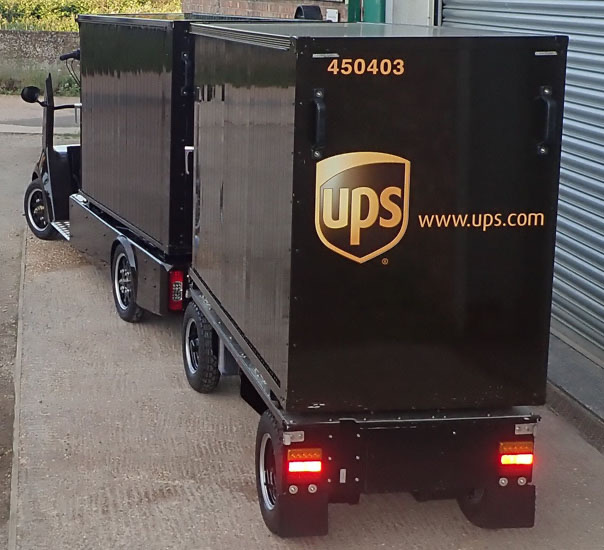Urbanization presents both opportunities and challenges for sustainable development. With cities generating over 70% of global CO2 emissions, innovative solutions are imperative. The Fernhay eQuad, a compact and efficient delivery vehicle, stands at the forefront of the circular economy—a system emphasizing resource efficiency and minimal environmental impact. This blog explores how it supports sustainable urban living and advances the principles of a circular economy.
Understanding the Circular Economy
The circular economy aims to break away from the traditional “take-make-dispose” industrial model. Instead, it focuses on resource efficiency, waste minimization, and sustainable design principles. Here’s how it works:
- Resource Optimization: Maximizing the use of raw materials.
- Product Lifecycle Extension: Designing products for reuse, repair, and recycling.
- Waste as a Resource: Transforming byproducts into valuable inputs for other processes.
Why Cities Need Circular Solutions
Urban areas are significant consumers of resources. Traditional linear economies lead to:
- Waste Accumulation: Overflowing landfills strain ecosystems.
- Energy Inefficiency: Fossil fuel dependence in logistics exacerbates climate change.
- Infrastructure Pressure: Congestion and pollution reduce urban quality of life.
Adopting circular economy principles addresses these issues by fostering resilience and promoting green innovations like the Fernhay eQuad. Additionally, circular solutions reduce cities’ dependence on finite resources, creating more resilient supply chains. As urban populations continue to grow, implementing sustainable systems becomes not just an ideal but an essential pathway for global progress.
The eQuad: A Circular Economy Solution
Sustainable Design and Efficiency
It is purpose-built for efficiency:
- Lightweight and Modular: Reduces material use without sacrificing durability.
- Zero-Emission Operation: Powered by electricity, it eliminates urban delivery emissions.
- Compact Dimensions: Designed to navigate crowded city streets, reducing congestion.
These features ensure that it aligns with the circular economy’s emphasis on sustainability.
Reducing Urban Logistics Footprint
Traditional delivery vehicles contribute significantly to urban emissions and congestion. They offer a sustainable alternative by:
- Delivering goods efficiently over short distances.
- Eliminating fossil fuel consumption.
- Encouraging businesses to rethink logistics with smaller, eco-friendly fleets.
By embracing solutions like ours, cities can reduce their logistics footprint and move closer to achieving their climate goals. Over time, such advancements can help restore environmental balance and improve urban living conditions for residents.
Real-World Impact: Green Cities in Action
Pioneering Sustainable Logistics in London
London, a global leader in urban sustainability, exemplifies how the eQuad integrates into the circular economy. Local businesses adopting them have reported:
- Significant reductions in delivery-related CO2 emissions.
- Enhanced delivery efficiency, even in high-traffic areas.
- Positive public reception due to reduced noise and air pollution.
The implementation of eQuads not only improves air quality but also encourages other sectors to explore eco-friendly innovations. These ripple effects further strengthen cities’ overall sustainability frameworks.
Building Partnerships for Broader Impact
Collaborations with city planners, logistics providers, and environmental organizations amplify the eQuad’s benefits. Examples include:
- Shared eQuad Fleets: Optimizing vehicle use among businesses.
- Eco-Incentives: Cities offering tax breaks for adopting green logistics solutions.
These initiatives highlight its potential to transform urban logistics on a larger scale.
The Future of Urban Logistics
Scaling Green Innovations
The eQuad represents a shift toward scalable, eco-friendly solutions in urban logistics. As cities adopt stricter environmental policies, demand for such innovations will grow. By scaling these systems across multiple cities and industries, their collective impact on the global environment can be substantial.
Inspiring Broader Change
Fernhay’s commitment to sustainability extends beyond the eQuad. By demonstrating the viability of circular economy principles in logistics, Fernhay inspires other industries to embrace sustainable practices. Businesses worldwide can take inspiration from the eQuad’s efficiency and adaptability, crafting solutions tailored to their unique needs and environmental challenges.

